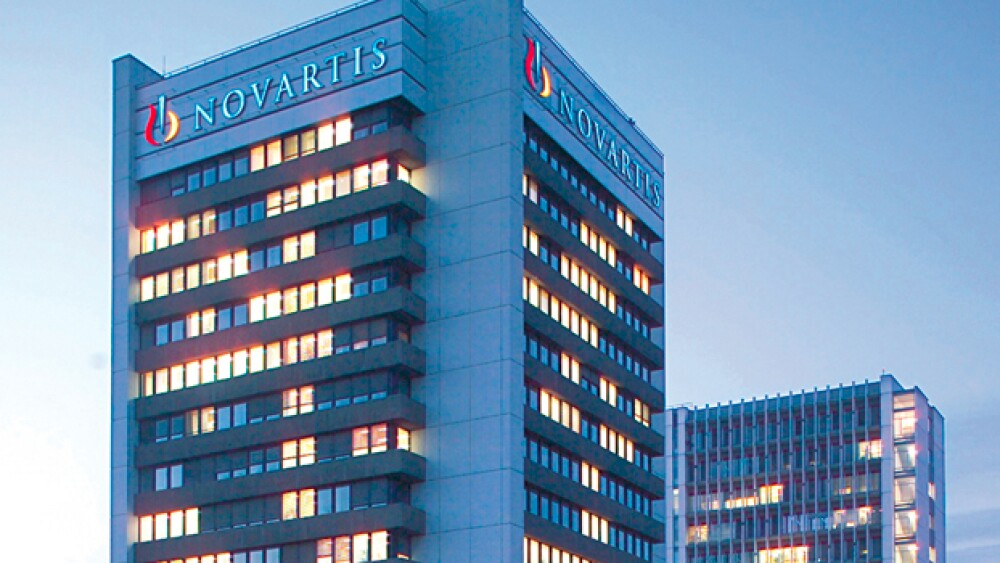Bruno Strigini, the CEO of Novartis Oncology, plans to exit the company’s Executive Committee by Dec. 31, 2017, and leave entirely in early 2018.
Bruno Strigini, the chief executive officer of Novartis Oncology, has announced his retirement from the company and the industry. He plans to exit the company’s Executive Committee by Dec. 31, 2017, and leave entirely in early 2018. At this time, Novartis has not named his successor.
The company statement said he was retiring “for personal reasons,” and the emphasis on his retirement from both the company and the industry suggests he won’t be taking the more typical route of leading a biotech somewhere.
Strigini joined the company in the summer of 2014, leaving his position at Merck, where he was president of its Europe & Canada division from Nov. 2009 through May 2014, and president of EUCAN II from Feb. 2006 to Oct. 2009. Before Merck, he was President, International of UCB Pharmaceuticals. Prior to joining UCB in 2001, he was vice president of international marketing for GlaxoSmithKline from 1996 through 2001.
Strigini held a Master’s of Science in microbiology from Heriot-Watt University in Scotland, a PharmD in Pharmacy, Pharmaceutical Sciences, and Administration from Universite Montpellier in France, and an MBA from IMD Business School in Switzerland.
John Carroll, with Endpoints News, writes, “Novartis has made some big moves in cancer since hiring Strigini from a senior Merck position in the summer of 2014, particularly in its role in spearheading the first CAR-T to hit the market and grabbing GSK’s oncology portfolio three years ago.”
Joseph Jimenez, Novartis’ chief executive officer, said in a statement, “I’d like to thank Bruno Strigini for his contributions and achievements. He has navigated the business unit through the Gleevec patent expiration and has led the successful integration of the GSK Oncology Product Portfolio acquired in 2015. I wish him the best for his future.”
The news of Strigini’s retirement comes only days after yet another success story for the company’s oncology division. On Dec. 10, Novartis presented updated data from the JULIET clinical trial of Kymriah (tisagenlecleucel) for adult patients with relapsed or refractory diffuse large B-cell lymphoma (DLBCL). The trial, which was led by researchers at the University of Pennsylvania, showed an overall response rate (ORR) of 53 percent with 40 percent of patients achieving a complete response (CR) and 14 percent hitting a partial response (PR) out of 81 patients who received the drug infusion. Six months after the infusion, the ORR was 37 percent with a complete response of 30 percent.
Kymriah is the first-ever chimeric antigen receptor T cell (CAR-T) therapy to be approved by the U.S. Food and Drug Administration (FDA). The results of this study were included in the regulatory applications in the U.S. and in the European Union. They were presented at the American Society of Hematology (ASH) annual meeting on Dec. 11.
“At the time of trial, these patients with DLBCL had been through multiple rounds of chemotherapy and many had unsuccessful stem cell transplants, leaving them with few options and a poor prognosis,” said Stephen Schuster, the study’s principal investigator, in a statement. Schuster is the Robert and Margarita Louis-Dreyfus Professor in Chronic Lymphocytic Leukemia and Lymphoma Clinical Care and Research in the University of Pennsylvania’s Perelman School of Medicine and director of the Lymphoma Program at the Abramson Cancer Center. “With tisagenlecleucel,” he continued, “we have been able to significantly increase their chance of achieving and maintaining a sustained response without stem cell transplant, demonstrating the therapy’s benefit in the treatment of this lethal blood cancer.”





